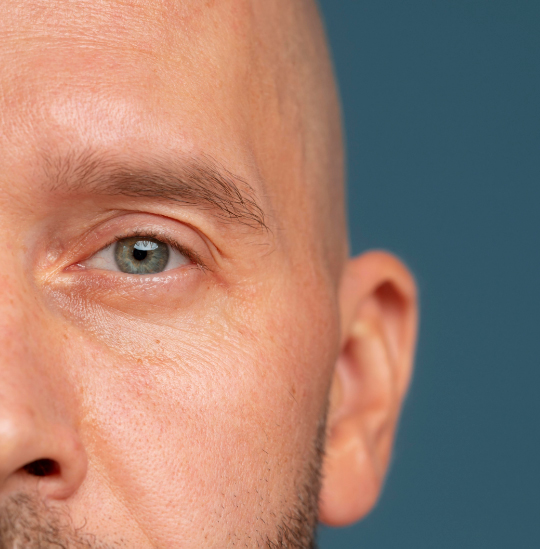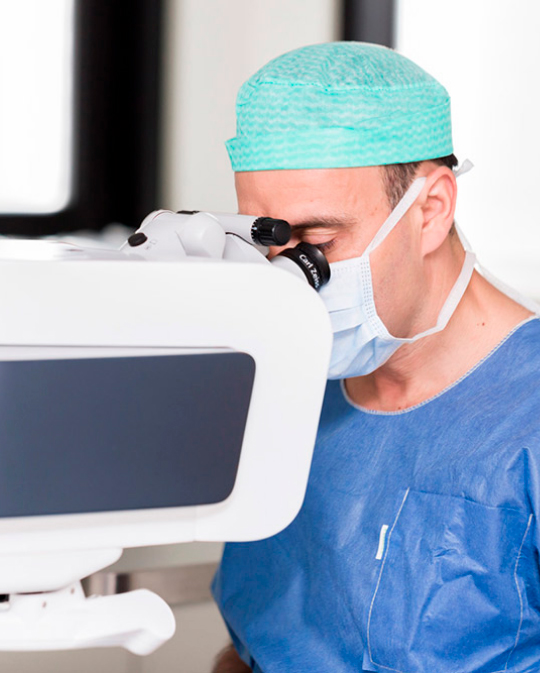Surgery
Corneal transplantation
The cornea is the transparent, curved part of the eye. Its main function is to allow light to pass through and focus on the retina, essential for clear vision. It is made up of multitudes of endothelial cells that do not regenerate and gradually diminish over time. In some patients, the cornea loses cells and translucency, or thins and becomes abnormally deformed. Corneal transplantation is therefore the solution.


Treatment
The corneal
transplant
The aim of corneal transplantation is to restore corneal transparency by replacing damaged endothelial cells with healthy cells from a donor.
There are 2 types of grafts:
- Transfixing keratoplasty
This is the classic technique, in which the patient’s cornea is removed in its entire thickness and replaced by a graft. - Endothelial grafting
This type of transplant involves cutting away the posterior part of the donor graft, leaving only the graft endothelium, and injecting it into the patient’s eye without removing the cornea.

Operation sequence
Grafting
cornea
Preoperative examination :
A thorough assessment is carried out prior to surgery.
Extraction of the donor cornea:
Corneal transplant:
Post-operative follow-up :
Our specialists
Our team of experts in FMH Ophthalmology
and Ophthalmic Surgery FMH
Find out more about our experienced ophthalmologists.

Doctor
Marouen Berguiga
Specialist FMH
in Ophthalmology
and Ophthalmic Surgery
Eye diseases
- Treatment of visual disorders in children and adults
Anterior segment surgery
- Cataract surgery
- Glaucoma surgery
- Refractive surgery
- Corneal transplant
- Oculoplastic surgery
- Management of keratoconus
Medical retinal treatment
Languages spoken :
French, English, Italian, Arabic

Doctor
Horace Massa
Specialist FMH
in Ophthalmology
and Ophthalmic Surgery
Eye diseases
- Treatment of visual disorders in children and adults
Anterior segment surgery
- Cataract surgery
- Glaucoma surgery
- Refractive surgery
- Corneal transplant
- Oculoplastic surgery
- Management of keratoconus
Medical retinal treatment
Languages spoken :
French, English, German, Italian
FAQ
Some quick answers to your questions
What is a corneal transplant and under what conditions is it recommended?
Endothelial decompensation may be triggered spontaneously or after ophthalmological surgery (most often cataract surgery), especially in patients with "cornea guttata". As a result, the only treatment for endothelial decompensation is corneal transplantation. The aim of corneal transplantation is to bring endothelial cells from a donor graft into the patient's eye, restoring transparency to the cornea.
What are the benefits and risks of corneal transplantation?
The advantages and disadvantages depend on the type of corneal graft chosen. There may be a greater risk of rejection with the transfixing keratoplasty technique than with endothelial grafting.